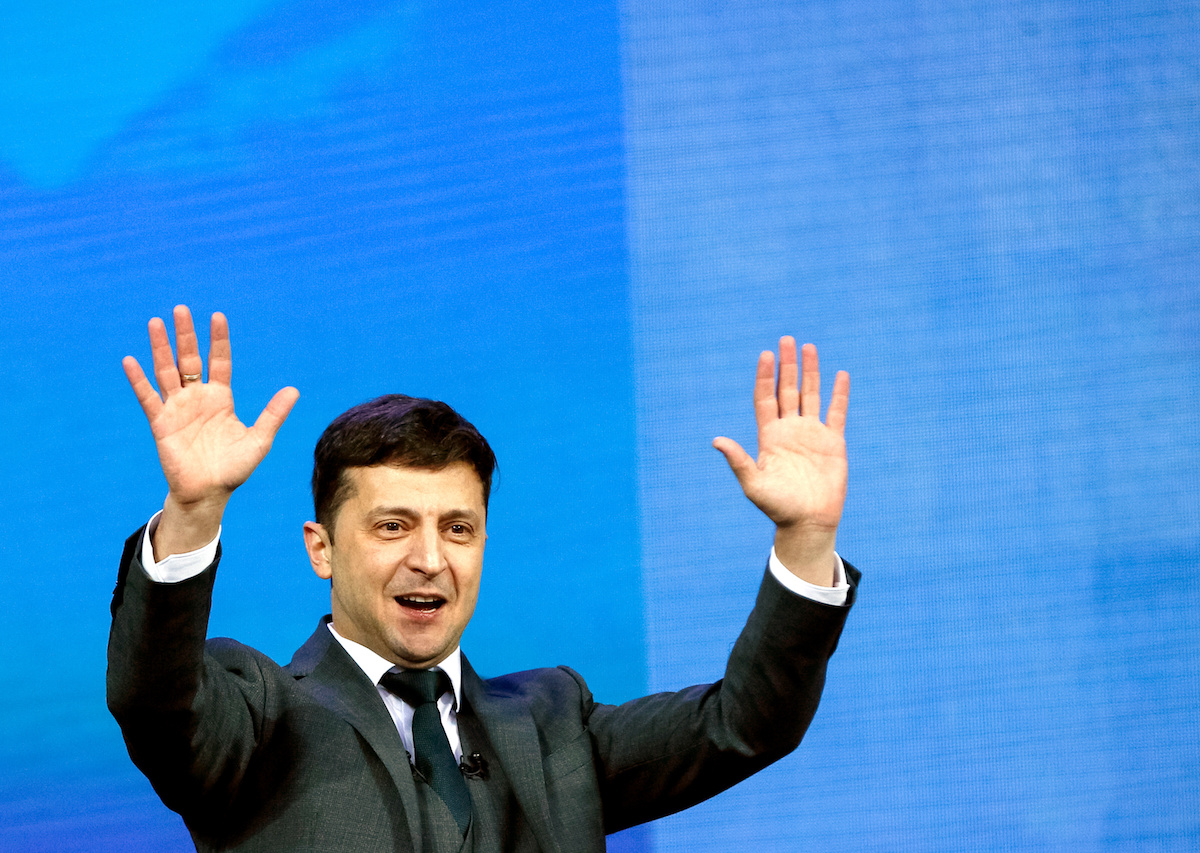What will and won't president-elect Volodymyr Zelensky do for Ukraine?
The incumbent president of Ukraine, Petro Poroshenko, acknowledged his defeat in the presidential elections last night, failing to gain even a third of the vote in the second round of the elections.
Meanwhile, his rival and president-elect, Volodymyr Zelensky, took 73 per cent of the vote.

An unprecedented race
Ukraine has never had such an election – not in terms of the number of participants (43 candidates) nor by the intensity of the face-to-face battle between Petro Poroshenko and Volodymyr Zelensky at the Kiev Olympiyskiy Stadium in front of 40,000 spectators.
• Ukraine and Russia: enemies at war or trade partners?
The main issues in the controversy between the two candidates in the second round were the war in Donbass, the annexation of Crimea and relations with Russia and its president, Vladimir Putin.
Corruption, price hikes and the dominance of oligarchs were also actively touched on by both candidates during the pre-election period, but turned out to be secondary in importance.
Now the discussion is over: the proposals of Volodymyr Zelensky turned out to be more attractive.
Briefly on Volodymyr Zelensky
Volodymyr Zelensky is 41 years old, has a solid track record in show business but zero experience in public policy.
He is widely known in the country for the popular television series The Servant of the People in which he plays the role of history teacher Vasily Goloborodko, who by chance becomes the president of the country. The rights to the series has already been bought by Netflix.
Zelensky is also known for participating in the TV show Evening Quarter and Evening Kiev, which are considered to be the most popular on Ukrainian television and attracts millions of viewers.
Many say that Ukrainian oligarch and billionaire Igor Kolomoisky stands directly behind Zelensky, and that he an now directly influence the country’s policy. Reuters journalists, in particular, studied the issue and came to the conclusion that Zelensky and Kolomoisky “have a lot in common”.
Zelensky has always categorically denied any ties to Kolomoisky.
Zelensky was also accused of having financial ties to Russian film companies.
• On Poroshenko and Zelensky: what they’re known for, how they’re similar and how they differ

What can Ukraine expect next?
The pessimistic view
Opponents of Vladimir Zelensky claim that the country can now expect a disaster. There are three main arguments:
• An actor and showman came to power, having no experience in public administration.
• His business is supposedly connected with Russia, hence his conciliatory tone towards the ‘aggressor country’ and his statements that he is ready “to do everything to stop the war”.
• His alleged proximity to billionaire Igor Kolomoisky, who will turn the new president a puppet.
The optimistic view
Zelensky supporters point out that the new president is supported in all the regions of Ukraine: Most of his support comes from the east of the country, but also from the west and centrally. Also, Zelensky was well ahead of Poroshenko.
In short, his victory is a demand for change from the entire Ukrainian society.
Another source of hope for Zelensky is the reaction of young people. The youth has shown massive support for Volodymyr Zelensky and rejected Poroshenko, who came straight from the Soviet nomenklatura party.
The realist view
Authoritative Ukrainian political observers point out two important circumstances:
• Whatever support a candidate receives during an election, it usually begins to dissolve rapidly soon after their victory. Society has traditionally been critical of any current policy.
• Ukraine is not a presidential republic. Any head of state is forced to seek parliamentary supoprt in their activities. Recently, the parliament legislated the country’s movement towards the European Union and NATO. Ukraine is waiting the September 2019 parliamentary elections in which Zelensky’s opponents will have the opportunity to level the playing field.




















